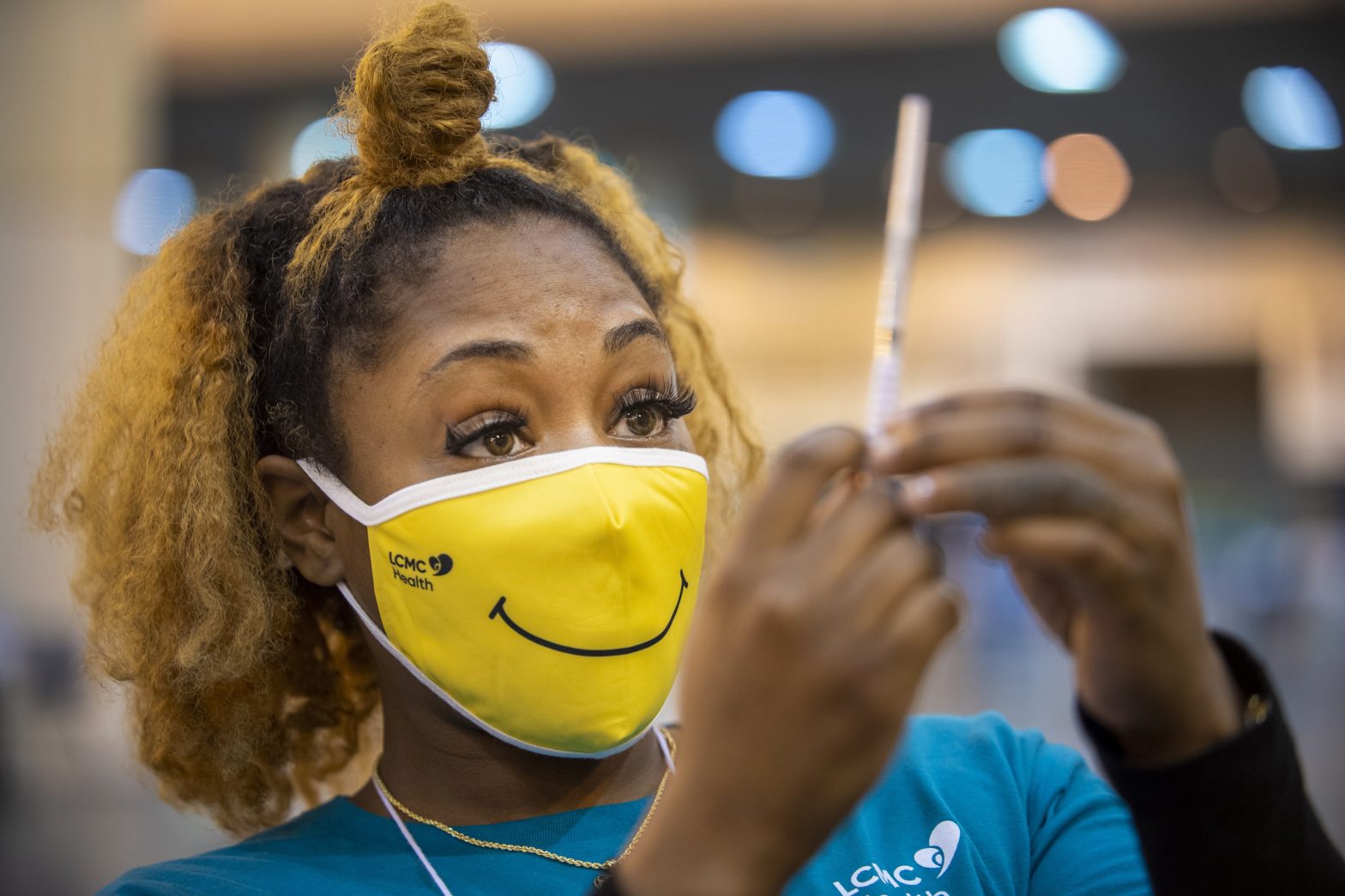PhRMA Tackles Health Disparities By Funding Faith-Based Initiatives

A recent initiative from PhRMA, a trade group representing the pharmaceutical industry, aims to combat racial inequities through community-based partnerships, particularly surrounding medication utilization and adherence.
“It’s documented what the disparities are with communities of color and access to care, and those issues have been addressed in number of ways many times, but COVID-19 really highlighted, in many ways, just how much those health disparities have worsened through COVID-19,” said Courtney Christian, senior director, PhRMA Equity Initiative.
Communities of color, such as Blacks, Latinos, Asian Americans, Pacific Islanders, and Native Americans, experienced a disproportionate number of COVID-19 cases compared to White populations.
Black Americans, Christian said, account for about 13% of the population in the US but make up about 22% of all COVID deaths nationally.
In April 2020, PhRMA began the Collaborative Actions to Reach Equity program to provide one-time grants to community-based partnerships serving communities of color most impacted, including faith-based leaders like churches and pastors, and critical partners solving issues relating to social determinants of health, such as community housing, transportation, education.
All individuals and organizations with a focus on health equity can apply, but preference is given to faith-based organizations with a history of providing resources to communities of color, and initiatives seeking to diversify the talent pipeline, and advance clinical trial diversity.
“Faith-based organizations are a piece of the puzzle, there is a lot of emphasis for communities of color on trusted messengers,” said Jacquelyn McRae, director of Policy, Research, and Membership at PhRMA.
The first round of CARES grant funding of $100,000 was divided between four organizations in 2020, and the most recent grant of $75,000 was divided between three organizations. The third round of funding will be issued by the end of the month
“Around the issue about equitable disruption of COVID-19 vaccines, one thing we did to get the word out is partnering with an organization out in Oregon, called Bridge-Pamoja. The funding allows them to do deep outreach to the community, including radio ads, and social media work to try to get people to understand the importance of being vaccinated,” said McRae.
Bridge-Pamoja is a network of faith leaders and culturally specific organizations dedicated to addressing the unique needs of communities of color in the Portland, Oregon area.
“The whole concept was birthed from Black pastors having a conversation about their experience in both continents about race and how they were treated by White cultures, and racial stereotypes that led to the reality of a system devised to not have us trust one another,” said Pastor Mark Jackson from Bridge-Pamoja.
The network was founded in the fall of 2019 and held a summit in mid-December with about 200-300 people in attendance, 10 or more community-based organizations, and 20 faith leaders representing Christan and Muslim faith communities.
“As we transitioned into 2020, the goal was to have a youth summit in summer of 2020, and wrap-up in Fall of 2020, but here comes COVID-19,” said Jackson.
Jackson and founder Pastor Levell Thomas shifted the model of the organization to adjust to the pandemic by holding virtual forums with leadership like state senators about how resources were being deployed in the state to ensure communities of color were prioritized.
“There is a lot of explicit and oppressive legal history in Portland … so to have an event like this was unparalleled,” said Jackson.
The organization has deployed the leadership and guidance of Black pastors and other leaders at mass vaccination sites to help strengthen the turnout and partnered with state officials about offering language translation services and getting more Black staff members at testing and vaccination sites.
“There were mass vax sites that closed down as numbers weren’t as strong as they envisioned. There is a historic mistrust of the medical industry among Black folks, and the pastors were able to play a lead role in launching COVID clinics in houses of worship,” said Jackson.
Jackson said a lot of the apprehension within the Black community to get vaccinated is due to the historical mistreatment, abuse and representation of Black bodies with things like the Tuskegee Study of untreated syphilis in Black males, sterilization experiments on Black women, AIDS experiments on Black babies, all which he said were administered by the medical field with funding from the government.
“So, talking about putting the COVID-19 vaccines in our bodies is not something we would do,” said Jackson.
Currently, Jackson said the COVID-19 hospitalization rate for Blacks is five times that of Whites in Portland, and that the state set a goal to get 80% of the population vaccinated by August, but recent data had the Black community at only 46.8% fully vaccinated.
Jackson has also been putting pressure on Oregon authorities to disaggregate the data for the state dashboard of all case and vaccine information by race, COVID cases, and location, to gather real time and transparent data.
Other organizations like ToGo Core, IRCO Africa House, Northeast Health Clinic, REACH are playing parallel roles in addressing the concerns and objectives outlined in the grant-awarded project from PhRMA, which is helping to build capacity to be engaged with policy and education.
“The grant has literally shifted our entire conversation at the health systems level to address racial inequities, and the willingness of health systems to be a part of that ongoing conversation,” said Jackson.

























